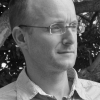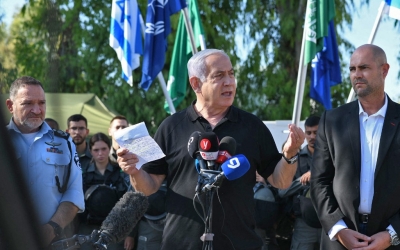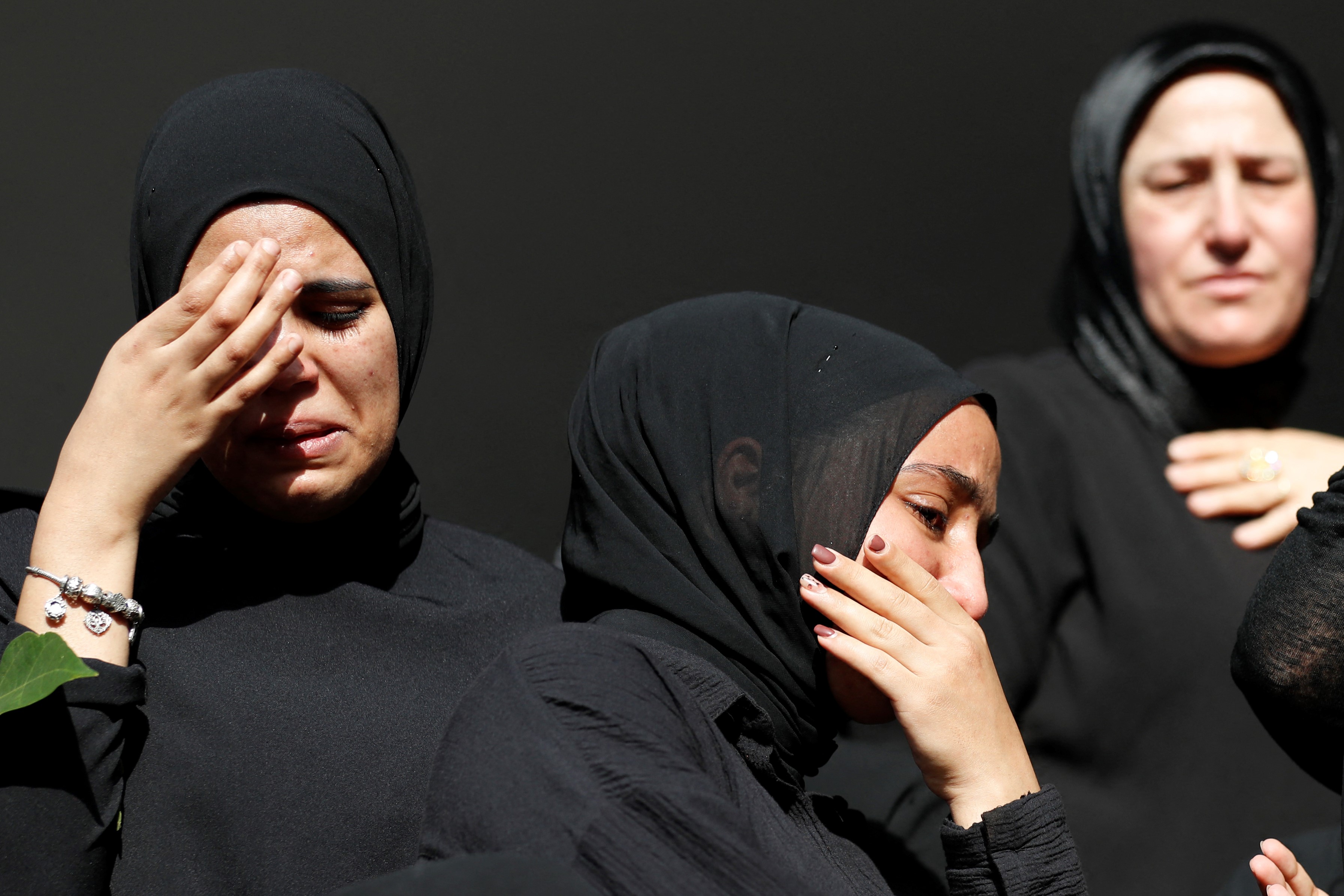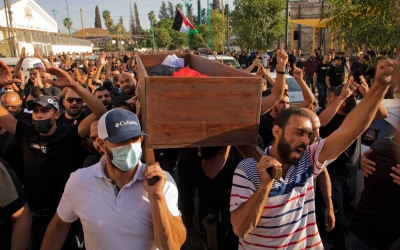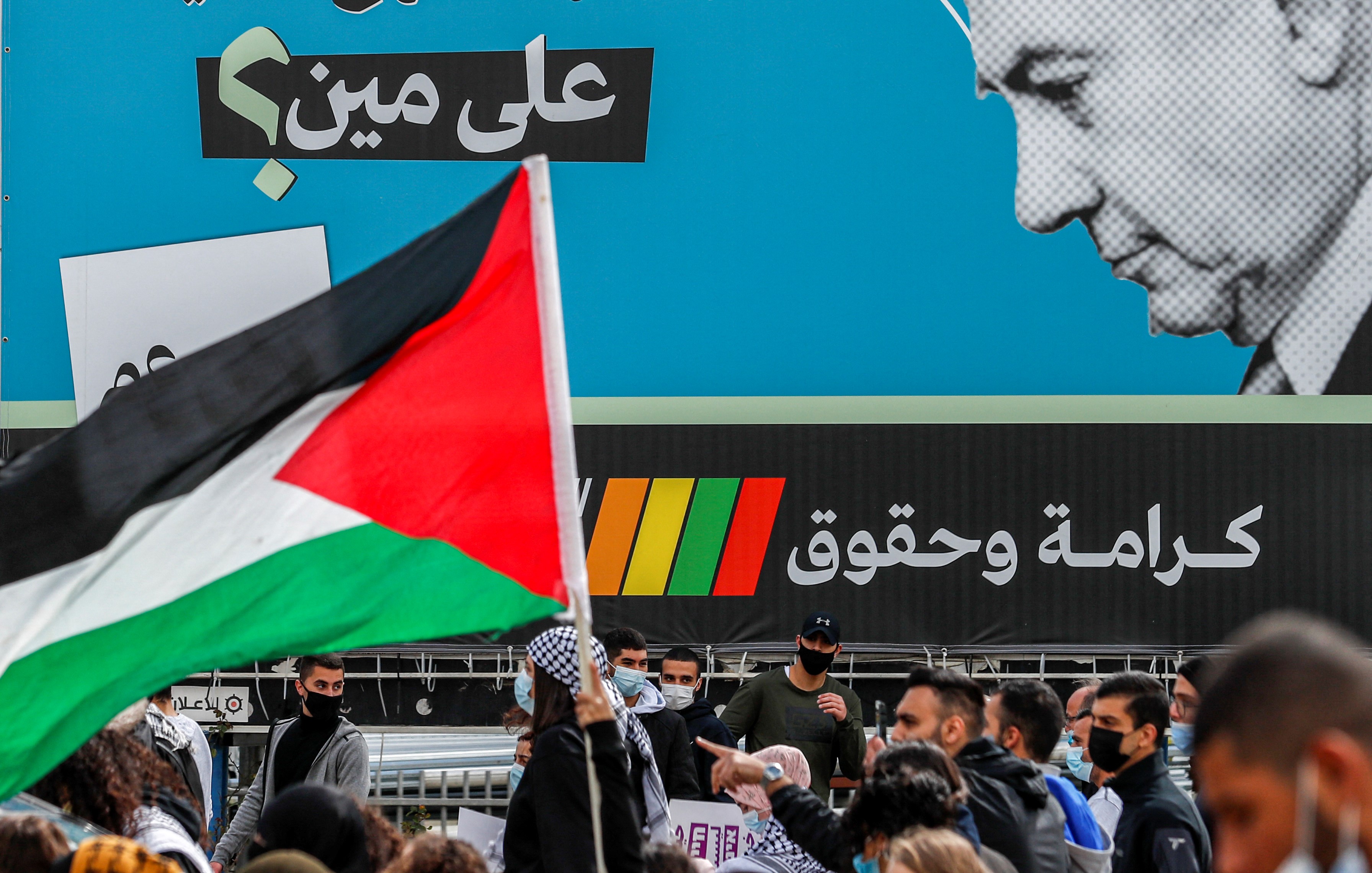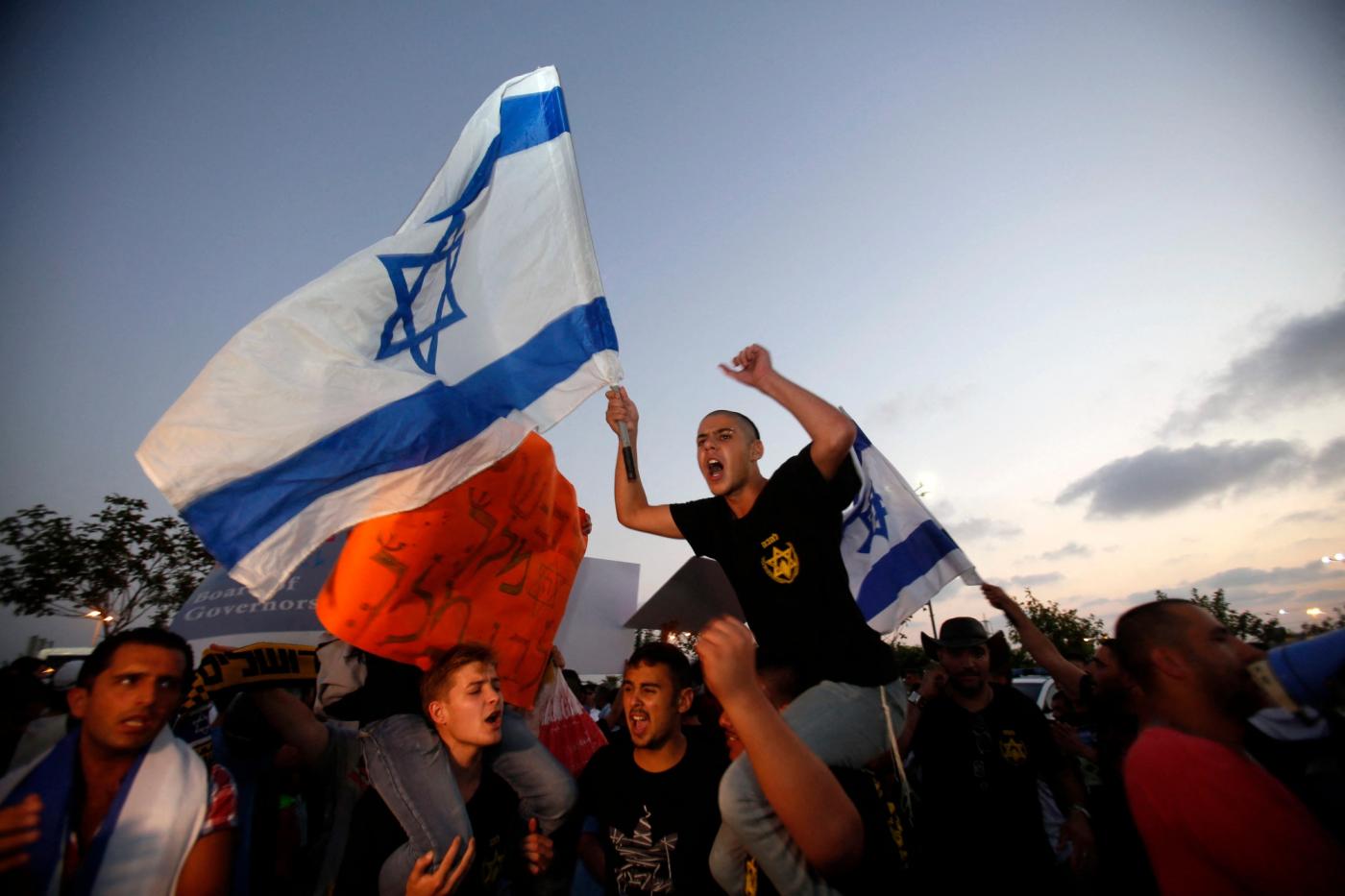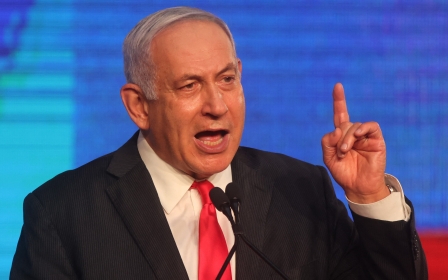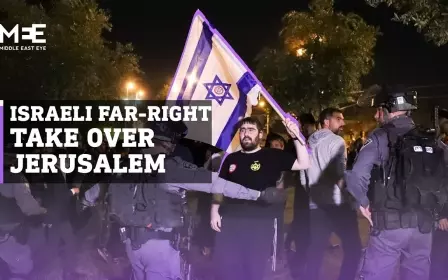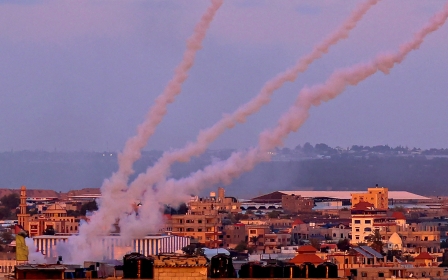'Feeble coexistence': Palestinians in Israel are crying out for equality
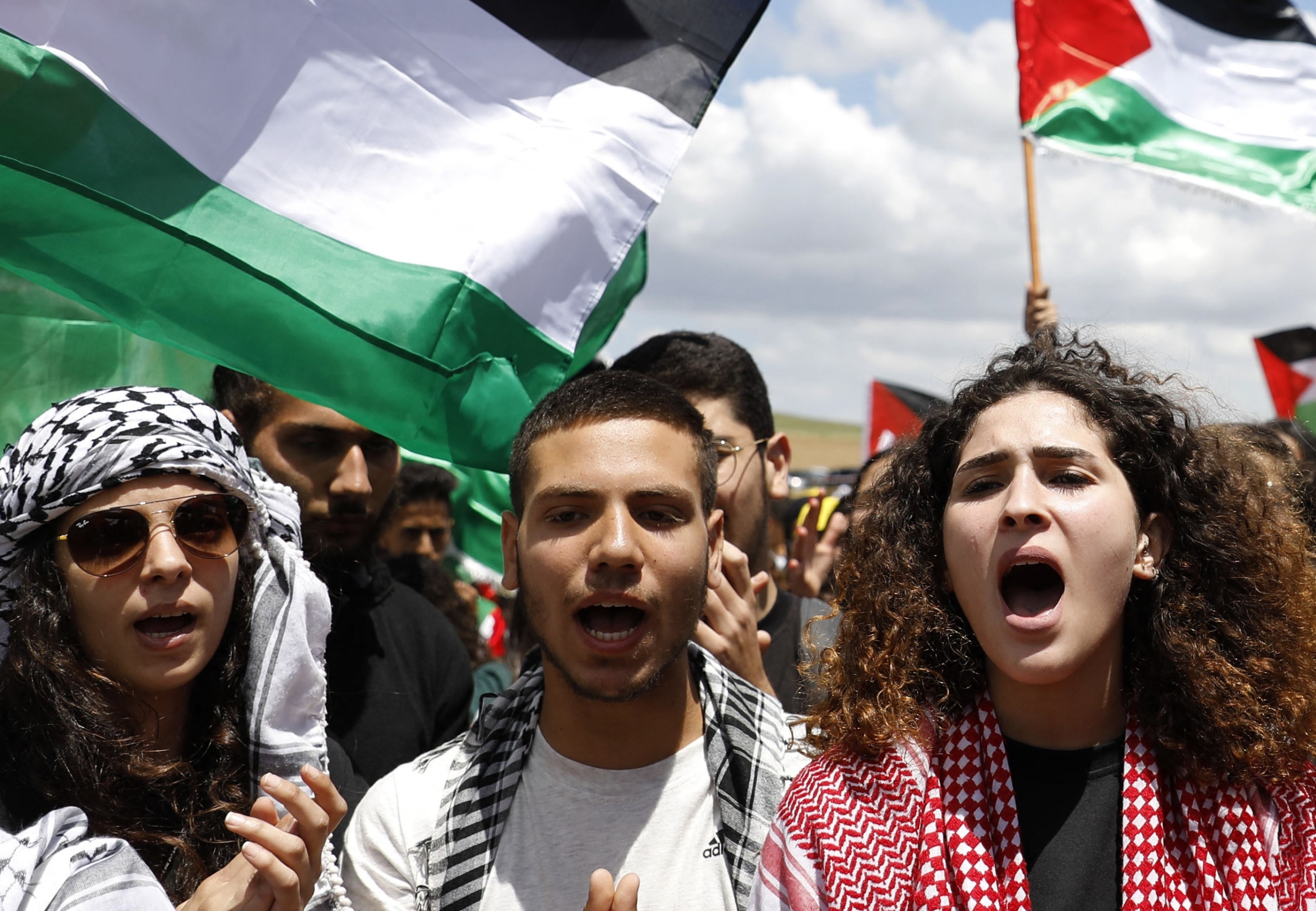
Last Friday, hours after a ceasefire went into effect between Israel and Hamas, ending 11 days of hostilities that killed more than 260 Palestinians and wrecked swaths of Gaza, the Old City of Acre on Israel’s northern coast tentatively reopened to visitors.
For the best part of two weeks, this Palestinian ghetto trapped inside a much larger modern Jewish city of the same name had been the scene of what the Israeli media termed "riots". It had been effectively declared a no-go zone by the police.
As in other Palestinian communities across Israel, youths in Acre erupted in angry protest earlier this month, incensed by scenes of Israeli brutality in occupied Jerusalem and devastating missile strikes on Gaza that only underscored their own experience of marginalisation and systematic mistreatment inside a Jewish state.
Today, these 1.8 million Palestinians mostly live in strictly segregated towns and villages, citizens in little more than name only
A new generation of Palestinian citizens of Israel - globally connected through social media - appeared to be at breaking point, crying out for equality, an end to their collective humiliation and the demonisation of their Palestinian identity by Jewish compatriots.
Israeli police responded swiftly and fiercely, even when most of the protests inside Palestinian communities were non-violent. Paramilitary border police more usually deployed in the occupied territories were called in to bolster the regular police.
The Haaretz daily reported this week a police source stating that their forces had used more stun grenades inside Israel in the past two weeks than in the previous 20 years. Tear gas and sponge-tipped bullets were also mainstays.
But more disturbing still, far-right Jewish gangs quickly "assisted" the police - urged on by Israeli government ministers - to inflict their own kind of vigilante-style "justice", roaming the streets attacking anyone who looked "Arab".
Israeli Jewish backlash
The first death from the violence was a Palestinian father of three, shot in the city of Lod as he was confronted by four armed Jews. And close by Tel Aviv, a taxi driver was dragged from his car and beaten severely after a hundreds-strong mob had smashed up a shop owned by a Palestinian citizen, with police nowhere in sight.
It was these scenes, and the police violence, that soon turned the protests into clashes that the media and politicians improbably declared a "pogrom" against Jews.
Israel’s ceasefire with Hamas may not so easily translate into the ending of tensions between the Jewish majority and Palestinian minority inside Israel. Though open again, Acre’s renowned fish restaurants around the harbour have been mostly empty.
Similarly, the speed boats usually packed with thrill-seekers hurtling past Acre’s wave-battered Crusader sea walls are moored idly on the quayside.
The Palestinian residents of old Acre, already reeling from the loss of tourists during the global pandemic, are now facing a backlash from Israeli Jews. With only a single table occupied by a local family in one of the Old City’s best-known restaurants on Friday, a waiter told me: "I don’t expect to see [Israeli] Jews here any time soon. They will want to punish us."
Palestinians in Israel, a fifth of the population, are descended from the small number of Palestinians who avoided the mass expulsions of 1948 that created Israel on the ruins of their homeland.
Today, these 1.8 million Palestinians mostly live in strictly segregated towns and villages, citizens in little more than name only. Their once-a-generation mass, nationwide demonstrations against systematic discrimination by a state that was imposed on them have failed to elicit understanding or sympathy from the Jewish public. Instead, they have served only to deepen the mistrust and to justify police brutality.
Out of fear or as part of a boycott, or a mix of both, Jewish Israelis are keeping away from Palestinian communities inside Israel such as Acre whose streets they once filled. In normal times they would come to eat Arab food, buy low-cost goods in the market stalls, get their cars fixed cheaply, or visit local archaeological sites.
That is the extent of "coexistence" in Israel. But now even that feeble association is gone. The Palestinian minority is once again paying a heavy price for raising its voice against oppression by the Jewish majority.
Palestinian 'Trojan horse'
Palestinian communities have more to contend with than consumer boycotts, however. Police are keen to be seen settling scores with the Palestinian minority for its impudence in staging the protests.
The theme of interviews with police officers has been a regret that they were "too soft" and too slow to use force. One told Haaretz this week: "The most important thing now is to restore deterrence. Otherwise, they’ll go farther during the next escalation."
That deterrence policy may explain a mass arrest operation launched by police on Monday - called "law and order" - "to bring the rioters, criminals and all those involved in the disturbances to justice". There have already been more than 1,550 arrests, the vast majority of them Palestinian citizens. The wave of street violence from the Jewish far-right has been largely ignored.
Police have also been increasing their visibility with checkpoints in so-called "mixed cities" such as Jaffa, stopping anyone who looks Palestinian and harassing them. All of this has been rationalised by the incitement of Israeli politicians during the protests. They have reinforced the impression of a permanent threat to the Jewish public from the country’s Palestinian minority.
President Reuven Rivlin painted Palestinian demonstrators as a "bloodthirsty Arab mob" set on a "pogrom" against Israeli Jews. Prime Minister Benjamin Netanyahu, meanwhile, equated the protesters - a large section of Palestinian youth in Israel - to "terrorists".
He has also argued that Palestinian protests in Israel pose a more serious security threat than Hamas rockets. This rhetoric has bolstered a narrative crafted by the ultra-nationalist right over the past two decades: that Palestinian citizens are an internal threat - a Trojan horse operating from within but serving the interests of Palestinians outside, such as Hamas.
Police aggression
This month’s protests have strong echoes of events back in October 2000, at the start of the Second Intifada (uprising).
Then, as now, police stormed Palestinian communities inside Israel to crush protests in solidarity with Palestinians in the West Bank and Gaza. In days, police shot dead 13 unarmed Palestinian demonstrators inside Israel and seriously wounded hundreds more.
More troubling still, evidence soon came to light that these violent Jewish gangs were often operating under apparent licence from the police, or even working with them
The police aggression was fed and justified by a false mainstream view that the protests were an attempt to overthrow the state from within. That narrative was never seriously challenged. For years Israeli Jews boycotted Palestinian towns such as Nazareth in retaliation.
But there was a deeper, more permanent political reaction. Much of the Jewish public interpreted the October 2000 events as confirmation of their long-held suspicion that all Palestinians - including their unloved neighbours inside Israel - were the same. They could not be trusted, and they were working together with a common goal: to drive Jews into the sea.
The fruit of that belief system was, first, the election of a government led by the arch-war criminal Ariel Sharon and then the consolidation of a growing ultra-nationalist right around Netanyahu - now Israel’s longest-serving prime minister.
And that belief system was also a large part of the reason why the Jewish far-right was well-prepared and so quick to turn out on the streets to “break faces” when the Palestinian minority erupted in protest this month.
Legal and human rights groups have documented the almost instant proliferation of far-right social media groups that plotted and armed themselves for attacks on Palestinian citizens. Many were from the settlements or allied to them. This was no spontaneous outpouring of violence. In some cases, settlers were bused - along with their weapons - to "mixed cities" to make good on their chants of "Death to the Arabs".
More troubling still, evidence soon came to light that these violent Jewish gangs were often operating under apparent licence from the police, or even working with them. They were exempted from curfews the police were enforcing on everyone else and they were filmed throwing stones at Palestinian citizens alongside police officers firing stun grenades.
If that was police policy, it was most likely approved by Amir Ohana, the police minister and close political ally of Netanyahu’s. As armed Jewish gangs were rampaging through Palestinian areas inside Israel, he called on the Jewish public to take the law into their own hands. He referred to Jewish citizens as a "force multiplier" - the long arm of police violence.
Ohana has made it a priority to further ease conditions for Israeli Jews to receive a gun licence. And there is a big appetite: applications have rocketed seven-fold in recent days.
Growth of 'hilltop youth'
For more than two decades, there has been a steady growth in the number of violent religious extremists living deep in the West Bank that terrorise Palestinians under occupation, invariably ignored or aided by Israeli soldiers.
Now, these so-called "hilltop youth" have reached adulthood and are mobilising and organising a new generation of Jewish fascists. These extremists are committed to using violence against Palestinians wherever they live, whether in the occupied territories or inside Israel. And just as they have always found allies in the Israeli army, they appear to be now finding a similar indulgence from the police.
Over the past two decades, the far-right in Israel has developed not just a political leadership, one that has been embraced by Netanyahu in his coalition governments, but a whole network of civil society organisations.
Groups such as Im Tirtzu have waged a cultural war to demonise Palestinian citizens for asserting their own identity, language and narrative. Lehava has stoked fears of intermarriage between Jews and Palestinians, including setting up street patrols to attack Palestinians, even though such marriages are exceptionally rare. Regavim has shown a mastery of manipulating Israel’s already racist court system to get Palestinians homes demolished, while Honenu has worked the same courts to excuse the perpetrators of Jewish terror.
None see a distinction between Palestinians in the occupied territories and Palestinians with citizenship inside Israel.
These groups have not only popularised the demonisation of all Palestinians, including Palestinian citizens of Israel, but they have prepared the ground for greater indulgence of violence by Israeli Jews towards the Palestinian minority. Where once the Israeli Jewish public was happy to leave its security forces to brutalise Palestinians, now a section of the population wants to be able to put the boot in, too.
How this is being absorbed into, and reinforcing, popular political culture in Israel was illustrated by a shocking radio phone-in with two leading Israeli journalists earlier this month. Asked by the sheikh of a mosque in the city of Lod if Israeli Jews were "allowed to slaughter us", the host Yinon Magal replied: "Yes, that’s how it will end, correct." Magal added: "You forgot the power the Jews hold." Using profanities, his colleague, Ben Caspit, threatened that another 1948 was in the offing - the moment when Israel ethnically cleansed most Palestinians from their homeland.
Election stalemate
Contributing to the increasingly complex and fraught relations between the Jewish majority and the Palestinian minority is the fact that Israel has begun lowering the walls of its Jewish fortress and engaging more openly with the global economy.
As a member since 2010 of the club for the world’s richest nations, the OECD (Organisation for Economic Cooperation and Development), Israel has been under pressure to open up a few limited areas of its economy to all citizens, including Palestinians, especially in the high-tech and health sectors. As a small but growing Palestinian middle-class has emerged inside Israel, demands for political equality have intensified.
The Jewish public feels increasingly threatened by the Palestinian minority’s greater visibility as it becomes a little more integrated into the country’s economic life
Not only have Israeli politicians refused any concessions but they have double-downed with more repressive and racist legislation, such as the Nation-State Law that enshrines Jewish supremacy over Palestinian citizens.
Nonetheless, the Jewish public feels increasingly threatened by the Palestinian minority’s greater visibility as it becomes a little more integrated into the country’s economic life.
This divide has been deepened by the last two years of election stalemate. Both Netanyahu and his opponents have been unable to form a majority government without support from a bloc of legislators from the Palestinian parties. Israel has held four consecutive elections specifically to avert that outcome.
For many Israeli Jews, Palestinian citizens are effectively holding the political system to ransom, making it impossible for Jews to rule their own Jewish state without making major concessions to a Palestinian "fifth column". That fuelled the surprise success of the openly fascist Jewish right in March’s election.
And for the Palestinian minority, it is clearer than ever that there is no Jewish party - however moderate it professes to be - willing to work with the Palestinian parties. The electoral dead-end illustrates the political dead-end of trying to seek either peace for Palestinians under occupation or equality for themselves inside Israel.
Back to its ugly old ways
The state ideology that makes Israel incapable of negotiating an end to the occupation of the West Bank and Jerusalem, or the siege of Gaza, is the same ideology that ensures the Palestinian minority remains marginalised, discriminated against and vilified.
That ideology has a name: Zionism. And it is rooted in a long settler-colonial tradition that is intimately tied to the histories of Europe and the "New World" its peoples colonised - in the United States, Canada, Australia, South Africa, New Zealand and elsewhere.
Shortly after the ceasefire with Hamas, Israel was back to its ugly old ways, reviving the very same policies that triggered the 11-day confrontation.
What the international community mystifies by calling 'the cycle of violence' is simply the cycle of Israeli aggressions and western complicity
Under escort from armed police, Israeli religious fanatics were back at the occupied al-Aqsa Mosque compound they are determined to bring under full Israeli sovereignty. Israeli police again attacked Muslim worshippers there.
And the postponed case brought by the Israeli state and settlers to cleanse Palestinian families from their homes in occupied East Jerusalem will soon return to Israel’s courts. Protesters trying to stop the expulsions from Jerusalem’s Sheikh Jarrah neighbourhood were attacked too at the weekend.
The inciting cause of Palestinian anger won’t go away. The abuses will continue and the resentment will build among Palestinians until it finds release again, in protests or rockets.
That is what the international community mystifies by calling "the cycle of violence". But it is simply the cycle of Israeli aggressions and western complicity. Palestinians will keep struggling because they have no choice so long as Israel and its allies offer them no other route to dignity and freedom.
The views expressed in this article belong to the author and do not necessarily reflect the editorial policy of Middle East Eye.
Middle East Eye propose une couverture et une analyse indépendantes et incomparables du Moyen-Orient, de l’Afrique du Nord et d’autres régions du monde. Pour en savoir plus sur la reprise de ce contenu et les frais qui s’appliquent, veuillez remplir ce formulaire [en anglais]. Pour en savoir plus sur MEE, cliquez ici [en anglais].


